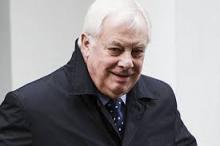Time For U.S.-Iran Talks
A wide range of credible sources suggest that the election of Iran’s new president Hassan Rouhani presents a timely, if not momentous, opportunity to initiate direct talks between the US and Iran in an effort to peacefully resolve the conflict over Tehran’s nuclear program.
The prospect of a breakthrough has been dramatically enhanced because of Rouhani’s resolve to take a drastically different path than the confrontational one taken by his predecessor Ahmadinejad during his eight years as president.
Conversely, regardless of how slim the chance to reach an agreement may be, the Obama administration has an obligation to seek direct negotiations to demonstrate that it has spared no effort to bring an end to a simmering conflict before it ignites another Middle East conflagration with disastrous implications.
Rouhani is a Western-educated cleric, a regime insider with vast connections to past and present top Iranian officials; he enjoys the confidence of Iran’s supreme leader Ali Khamenei and knows what he can and cannot accept. He is a skilled and experienced negotiator and possesses many personal attributes that have earned him wide respect.
In a statement after his inauguration, Rouhani pledged to follow a “path of moderation” while promising greater transparency over his country’s nuclear program.
That said, he insisted “the only way for interaction with Iran is dialogue on equal footing, with mutual respect and mutual confidence building. I want to clearly express that if you want the right response it should not be through the language of sanctions, but through discourse and respect [emphasis added].”
To clearly signal his readiness to negotiate in earnest, he appointed a Western-oriented team including Javad Zarif, a fluent English speaker who earned his doctorate at the University of Denver and was an ambassador to the UN, as his foreign minister, which strongly suggests his commitment to break the nuclear impasse.
The White House congratulated the new president, stating “The inauguration of President Rouhani presents an opportunity for Iran to act quickly to resolve the international community’s deep concerns over Iran’s nuclear program.” The new Iranian government “will find a willing partner” in the US if it chooses to “engage substantively and seriously.”
I, for one, fully support direct negotiations. The United States needs to exhaust every possible option before it resorts to military means, particularly since such talks come at a time when Tehran needs to change course and is likely to make significant concessions without losing face.
Tehran is motivated by four major factors to end the thorny nuclear problem:
First: The new president has committed to effectively address Iran’s economic malaise and its continuing deterioration, resulting mainly from crippling sanctions. Rouhani knows that the only way to alleviate the economic pressure is by easing the sanctions and eventually eliminate them altogether through negotiations.
Second: Given the Middle East turmoil in the wake of the Arab Spring, Tehran is particularly interested in maintaining its influence in Syria and being an important regional player. Rouhani knows that as long as the nuclear problem persists, the US will continue to take measures to undermine Tehran’s interests and prevent it from becoming a part of the solution to Syria’s civil war.
Third: Iran is keen on ending its international isolation and nothing can mitigate that unless there is a solution to the nuclear impasse. Rouhani is fully aware that this may well be Iran’s last chance to end the conflict peacefully and rejoin the community of nations as a significant regional player with global outreach.
Fourth: There is nothing more important to the Iranian clergy than to stay in power. As long as the nuclear issue continues to simmer, they remain anxious about what they perceive to be the US’ intent on seeking regime change. Indeed, for the Iranian clergy, retaining power trumps the acquisition of nuclear weapons.
For the US there is no better time to engage Iran directly, especially now that the Obama administration is struggling to reestablish its credibility in the eyes of America’s friends and foes alike.
Nearly thirty national security specialists, former diplomats and military commanders sent a letter to Obama strongly stating that the election of Rouhani presents a “major potential opportunity to reinvigorate diplomatic efforts to resolve the standoff over Iran’s nuclear program.”
Given the potential entanglement of the U.S. in another violent conflict, which most Americans reject, the Obama administration needs to demonstrate to the American public that it would not dismiss any opening for a diplomatic solution, especially in light of the administration’s timid approach to the crisis in Syria.
Direct talks will garner the full support of the European community. America’s European allies are extremely concerned about the consequences of a military attack in the absence of an agreement and want to be assured that no stone is left unturned in order to reach a peaceful agreement.
Holding such talks will send a clear message to Russia and China that the United States remains the single most influential power in the Middle East and disabuse both nations of the notion that the US has lost its bearing and would not take unilateral action should it become necessary.
Regardless of the result of these direct talks, they will restore the Arab states’ confidence that Washington will not leave Iran’s nuclear program unchecked. The predominantly Sunni Arab Gulf States in particular also see Iran’s nuclear program in the context of the Sunni-Shiite conflict. They are terrified of a nuclear Iran and expect the US to prevent it, but they prefer a peaceful solution to the impasse.
Notwithstanding Israel’s deep concerns over Iran’s existential threats, only the US can assure Israel that direct talks will allow the US to determine where Tehran really stands on the nuclear issue. Nevertheless, the Netanyahu government should not be setting the agenda on how to resolve Iran’s nuclear program as long as it is satisfactorily resolved.
Indeed, if the talks lead to an agreement satisfactory to Israel, it will potentially spare the country from a major military operation with unpredictable consequences. If, however, the talks fail it will provide Israel the moral right to take whatever measures are deemed necessary to eliminate the Iranian threat.
To improve the chances of success in these talks, a stringent set of rules of engagement must be in place. To prevent the Iranians from playing for time, the duration of the negotiations should be established in advance and it should not exceed four months, which by all estimates should be enough to reach an agreement.
Although there must be no easing of the sanctions already in place during the negotiations, no new ones should be added. The House of Representatives’ overwhelming passage of legislation that further restricts Iran’s oil sector, just as Rouhani was inaugurated, is certainly the wrong move at the wrong time.
It should be noted that with or without direct negotiations, Tehran is not likely to give up entirely on its “right” to enrich uranium for peaceful purposes.
The key questions for the United States are: under what circumstances can Iran maintain any uranium enrichment facilities on its soil, and will the U.S. be prepared to accommodate Iran in this regard?
The US may eventually accept containment rather than prevention provided that an extremely stringent monitoring system is in place. In a letter to Time Magazine in 2006, Rouhani clearlystated “Iran…would agree on terms of the continuous presence of inspectors…to verify credibly that no diversion takes place.”
A peaceful solution to the Iranian nuclear program can be found. Bilateral U.S.-Iranian negotiations may well be the only means by which to achieve such an outcome. Both sides know that a failure in these negotiations could lead to disastrous consequences and it must be avoided.
The circumstances are ripe, the opportunity is there, and it must not be missed.

















